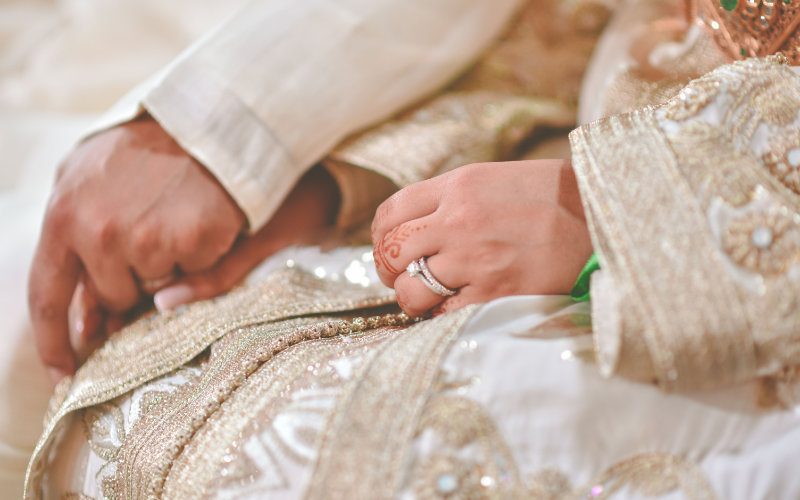Virtual Marriages Surge in Morocco, Raising Social and Religious Concerns

Online marriage or "virtual marriage" has become a popular practice in Morocco. The phenomenon raises the concern of specialists in social psychology who question the nature of these human relationships without direct communication, and their compliance with traditional and religious rules.
The subject is the subject of debate and "deserves a scientific study from several angles," says Mustapha Saâliti, professor of social psychology, specifying that "in the social and economic context in Morocco, we can consider virtual marriage as the result of the opportunities offered by the digital world to seek a life partner, especially when the social or economic reality does not allow it at the desired age, especially for women, whether in rural or urban areas."
In a statement to Hespress, he explained that "faced with the rise in refusal to marry, especially among young people who postpone the union for professional or other reasons, the virtual world has become the only solution for many people." "When certain virtual relationships succeed in establishing a stable marital life, this influences the perception of others towards this type of marriage, transforming it into a model sought after by several categories," added Saâliti, however stressing that "this new experience of marriage is not without risk, the information exchanged via social media constituting the basis of the first impression on the other party."
For his part, Mohammed Lbiti, a researcher in Islamic thought, said that in the past, "marriage was done according to religious rules preserving modesty and honor, and respecting its pillars and conditions." But today, "with the advent of social networks, new means of mediation in marriage have appeared, such as dating sites sometimes called "religious marriage sites", or what is called "the marriage faqih"," he specified.
According to him, "these means differ in their nature and according to the degree of respect of their promoters for the religious rules, which requires verifying their legitimacy." And to continue: "With the new laws and the difficult social conditions, the rates of refusal to marry have increased, as well as the rate of celibacy. This situation has pushed many people to seek any means to get married. [...] The most dangerous is the exploitation of the religious appearance to deceive people, some wrongly thinking that the mere wearing of a religious garment gives its wearer the authority to issue fatwas."
Related Articles
-

Franco-Algerian Tourist Arrested at Marrakech Airport for Racist Outburst During Security Check
1 September 2025
-

Morocco Fights Drought with Innovative Floating Solar Project on Tanger Med Dam
1 September 2025
-

Tragic Collision Near Casablanca: 5 Dead, 7 Injured as Tractor and Van Crash on Sidi Bennour Road
1 September 2025
-

Morocco Bolsters Military with $120 Million Israeli Drone Deal, Expanding 1,000km Strike Range
1 September 2025
-

Mother of Three Brutally Tortured for 8 Days in Horrific Kidnapping Near Témara
1 September 2025